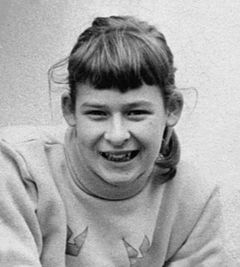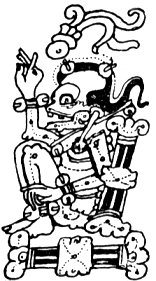스콧 배니스터
Scott Banister스콧 배니스터 | |
|---|---|
| 태어난 | 1975년(46~47) |
| 모교 | 일리노이 대학교 어바나 샴페인 |
| 직업 | 기업가, 투자자 |
| 로 알려져 있다. | 아이언포트 공동창립자 |
| 배우자 | 시안 배니스터 |
스콧 배니스터(Scott Banister, 1975년 출생)는 미국의 기업가, 스타트업 창업자, 엔젤투자자다.그는 안티스팸 회사인 아이언포트를 공동 설립했으며, 페이팔의 초기 고문 겸 이사였다.그는 인터넷 광고회사의 핵심 비즈니스 모델인 키워드 경매를 통해 유료 검색 광고를 발명했다.
배니스터는 마리화나 권리 운동가로 2016년 대선 레이스에서 공화당 상원의원 랜드 폴의 지지자였다.
어린 시절과 경력
배니스터는 미주리주 캔자스시티에 살던 토목공학자 데비와 브루스 배니스터(1951~2006)의 아들이다.[1]지미 소니의 말에 따르면
미주리에서 온 배니스터는 일찍부터 기술을 배웠다.고등학교 때, 그리고 대학교 때, 그는 웹사이트를 만드는 것에 열정을 가지고 UIUC에 왔다. 왜냐하면 컴퓨터 공학에서 뛰어난 명성 때문에...배니스터는 또한 전통 교육의 테두리에 대해 격분했고, 그는 대학을 해킹의 대상으로 다루기 시작했다.그는 회사를 세우고, 자신을 인턴으로 고용한 후, 그 인턴쉽을 이용해 학점을 따는 대담한 계획을 포함한 UIUC 규칙의 해결 방안을 고안했다.[2]
바니스터가 UIUC에 다닌 원래 의도는 컴퓨터 과학 교수가 되는 것이었다.마이클 엘스버그는 다른 기업가와 마찬가지로 스콧 배니스터도 세상에서 만들고 싶은 결과를 집요하게 바라보고 그 결과를 어떻게 달성할 것인가에 집요하게 집중했다고 썼다.[3]배니스터를 "독학한 연쇄 기업가"라고 특징지은 엘스버그는 배니스터의 말을 인용, "나는 낮에는 수업을 하러 가고 있었지만 밤에는 추상적이고 이론적인 것들을 배우고 있었다"고 말했다.사업이란 게 실제로 세상일이 어떻게 돌아가는지, 그리고 사람들이 어떻게 돈을 버는지 알 수 있었다. 즉, 물건을 만들고 소비자가 원하는 것을 만드는 것이다."[3]
컴퓨터월드는 배니스터가 소매업자들이 웹에 그들의 존재를 광고하는 것을 돕기 위해 기존의 검색 엔진 직공들을 이용하려는 그의 첫 번째 아이디어를 얻었다고 보도했다.[4]그와 친구들은 Submit It의 선구자인 ListServe라는 무료 등록 서비스를 게시했다.[4]
1995년 여름, 배니스터는 여전히 우르바나 샴페인의 일리노이 대학에 재학 중, 친구, 동료 학생인 맥스 레빈, 루크 노섹과 함께 스폰서넷 뉴미디어 주식회사를 공동 설립했다.[5]세 사람은 대학 컴퓨터기계협회(ACM) 지부에 사무실을 차렸고, 컴퓨터과학부 뉴스레터는 빈티지한 닥터페퍼 자판기에 마이크로컨트롤러를 설치해 학생들이 학생증을 긁어 음료수를 살 수 있도록 인터넷에 연결했다고 보도했다.[3]
교실 밖에서 배니스터는 스스로 HTML을 가르쳤고, 교직원인 벅스 오클리(Burks Oakley)와 함께 일하는 웹마스터로 취직했으며, UIUC의 컴퓨터과학부 동창뉴스에 따르면 최초의 광고 네트워크인 스폰서넷(PussorNet)과 최초의 온라인 광고 공간 경매인 Permalink.com 등 3개의 웹 회사를 시작했다.시간 URL과 평생 이메일 주소, 그리고 웹 사이트의 광고 도구인 Submit lt!를 제출한다.[6]
배니스터는 세 친구 중 실리콘밸리로 떠난 첫 번째 친구였고, 창업을 한 첫 번째 친구였다.[2]그는 1996년 2학년 때 대학을 나와 복수 검색 엔진에 광고를 할 수 있는 무료 자동 자원인 Submit It!을 공동 설립했다.[7]알리 파르토비는 이를 "역사상 최고의 비즈니스 아이디어 중 하나로 판명된 단순하지만 우아한 개념"이라고 평가했다.[8]Submit It!는 1998년 6월에 LinkExchange에 인수되었고,[9] 마이크로소프트는 1998년 12월에 LinkExchange를 인수했다.[10]제출하라!, ListBot, 그리고 배니스터의 ClickTrade는 MSN의 LinkExchange의 일부가 되었다.[6]
2000년 12월, 스콧 와이스와 함께, 배니스터는 회사 인박스 안에 포르노가 넘쳐나는 것을 막기 위해 아이언포트를 공동 설립했다.[11]그것은 2007년에 시스코에 8억 3천만 달러에 인수되었다.[12]
배니스터는 2001년 AOL이 인수한 최초의 e-메일 가능 홈 음성메일 서비스인 e보이스(eVoice)를 비롯한 다른 스타트업과 함께 이사회 및 투자자로 활동해왔다.그는 아이디어 담당 부사장을 역임했고, 그는 오버쳐를 지원하는 독특한 입찰을 위한 검색 엔진 모델에 기여했다.[8][13]
그는 자연어 검색 엔진을 만드는 스타트업 파워셋의 초기 투자자였다.그의 다른 사모투자로는 우버, Zappos.com, 라이브옵스, 페이스북, Hi5.com, Tagged.com, iLike, Causes.com, 탑시랩스, 텔레포트,[14] 주식회사,[15] 테크트랙 등이 있다.배니스터는 또한 그의 아내 시안 배니스터, 제프리 웨스코트와 함께 성인 테마 소셜 네트워킹 사이트인 Zivity를 공동 설립했다.[11]
데이비드 겔레스는 배니스터를 페이팔 마피아 중 한 명으로 지목했으며 페이팔의 전 이사였으며 "가장 가치 있는 기술 창업가들의 모임"에 영향력 있는 투자자들이다.[16]페이팔의 초기 버전에 투자하였으며, 창립 이사로 활동하였다.[2]앤드류 가나토와 스키 윤은 2019 벤처비트의 기사에서 피터 티엘과 스콧 배니스터가 각각 100개 이상의 기업에 투자하는 가장 많은 투자자를 배출했다고 썼다.[17]그 글에서 가나토와 윤은 페이팔 마피아 회원들의 투자 간 상호연계를 보여주는 넷 그래프를 제공한다.[18]
사생활
배너는 아이언포트의 스팸 발송자 블랙리스트를 관리하던 중 아내 시안 씨를 만났고, 이들은 2년 뒤 결혼했다.[11]
배니스터는 마리화나 권리 운동가로 애리조나와 다른 주에서 합법화를 지지하고 있다.[19]UIUC에서 Libertarians 대학의 총장을 역임했으며, 캠퍼스 무신론자 & Agnostics를 공동 설립했다.[6]
그는 공화당 상원의원 랜드 폴의 지지자였다.[20]2015년 배니스터는 폴의 대선 출마를 지지하는 슈퍼 PAC에 300만 달러를 기부했다.[21]폴이 선거운동을 중단한 후 그는 나중에 테드 크루즈에게 지지 의사를 바꾸었다.[22]
배니스터는 캘리포니아의 하프문 베이에 산다.[23]
수상 및 수상
시안과 스콧 배니스터는 2016년 테크크런치 시상식에서 올해의 크런치상을 수상했다.[24]와이어드의 제시 헴펠은 "지난 봄 스페이스X, 우버, 딥마인드 테크놀로지스에 대한 선견지명이 있는 베팅으로 테크크런치 올해의 천사상을 수상했다"[25]고 썼다.
2015년 유진 볼로크는 "바니스터들이 클리닉을 지지한 매우 너그러운 재능을 인정받아 UCLA 제1수정안 아미쿠스 브리프 클리닉을 스콧 & 시안 바니스터스 제1수정안 클리닉으로 개칭한다"고 발표했다.[26]
참조
- ^ "Obituary for Bruce Banister". The Kansas City Star. August 12, 2016. pp. A13. Retrieved January 23, 2021.
{{cite news}}: CS1 maint : url-status (링크) - ^ a b c Soni, Jimmy (February 22, 2022). The Founders: The Story of Paypal and the Entrepreneurs Who Shaped Silicon Valley. Simon and Schuster. pp. 11–12. ISBN 978-1-5011-9726-0.
Before they met Levchin, ACM had also brought Nosek and Scott Banister together. Banister would become the first in their trio to set off to Silicon Valley, the first to sell a start-up, and an investor in the earliest iteration of PayPal, ultimately serving as a founding board member. Hailing from Missouri, Banister took to technology early. In high school, and then college, he kindled a passion for creating websites and came to UIUC because of its exceptional reputation in computer science. By the time he and Nosek first met, Banister also chafed against the confines of traditional education, and he began to treat college as a target to hack. He devised workarounds to UIUC rules, including an audacious scheme in which he created a company, hired himself as an intern, then used the internship to earn course credit. Iconoclastic, intense, soft-spoken, and with "Jesus-like hair," Banister became a guiding light for both Nosek and Levchin, and the three became fast friends and collaborators.
- ^ a b c Ellsberg, Michael (September 25, 2012). The Education of Millionaires: Everything You Won't Learn in College About How to Be Successful. Penguin Publishing Group. pp. 203–204. ISBN 978-1-59184-561-4.
Self-educated serial entrepreneur Scott Banister, who sold his IronPort Web security appliance company to Cisco in 2007 for $830 million, is a living example of focusing on outcome instead of output. Scott was studying at the University of Illinois at Urbana-Champaign in the late nineties, with the intention of becoming a professor of computer science. On the side of his studies, he began teaching himself HTML (hypertext markup language). He soon applied for and got a job as a webmaster, and then started various Web companies, including a banner ad company with college buddy Max Levchin.
..."I found quickly that, by day I was going to class, learning a bunch of abstract, theoretical stuff, whereas by night, I was working on a business. I could see that business is how things actually get done in the world, and how people make money in the world: you build stuff, things that consumers want... But very quickly it became clear, business is where I'm learning all the real skills that are going to help me for the rest of my life. And this stuff in class, I didn't even know when it is going to help me or anyone else, ever. I realized, getting involved with business sooner rather than later, as opposed to being off in this education bubble, which is very different from the way the world works, was incredibly important for me..."
...Scott Banister, and other self-educated success stories featured in this book, relentlessly look at the outcome they want to produce in the world and in their lives, and relentlessly focus on how to achieve that, cutting out all extraneous crap not relevant to that outcome. It's one of the key factors that distinguishes those with the entrepreneurial mind-set from those with the employee mind-set. - ^ a b Radcliff, Deborah (May 8, 2000). "E-strategists: They are the brains behind successful e-commerce projects, the ultimate pitchmen. Consider the experiences of Scott Banister". Computerworld. 34: 92 – via Google Books.
- ^ "SponsorNet New Media". Freebase. Archived from the original on January 18, 2012. Retrieved February 17, 2011.
- ^ a b c "Scott Banister and Jonathan Stark: ACMers reunited at idealab!". Department of Computer Science, Alumni News. 2 (4): 14–15. January 2001.
- ^ Gleick, James (May 5, 1996). "FAST FORWARD; Hall of Mirrors". The New York Times. ISSN 0362-4331. Archived from the original on January 29, 2021. Retrieved January 23, 2021.
- ^ a b Partovi, Ali (August 29, 2010). "Bubble Blinders: The Untold Story of the Search Business Model". TechCrunch. Retrieved December 1, 2020.
- ^ "LinkExchange Acquires Submit It!". ClickZ. June 24, 1998. Retrieved January 22, 2021.
{{cite web}}: CS1 maint : url-status (링크) - ^ Wingfield, Nick (November 5, 1998). "Microsoft Buys LinkExchange For About $250 Million in Stock". The Wall Street Journal. Retrieved April 13, 2022.
LinkExchange and its 100 employees will be integrated into the Redmond, Wash., software giant's MSN network.
- ^ a b c Barret, Victoria (January 25, 2008). "You Get What You Pay For". Forbes. Retrieved January 23, 2021.
- ^ Keith Regan (January 4, 2007). "Cisco buys IronPort for $830 Million". E-Commerce Times. Archived from the original on March 1, 2021. Retrieved May 21, 2013.
- ^ Guth, Robert A. (January 17, 2009). "Microsoft Bid to Beat Google Builds on a History of Misses". Wall Street Journal. ISSN 0099-9660. Retrieved December 1, 2020.
The roots of Microsoft's first paid-search foray trace back to 1995. The World Wide Web was just becoming popular. Small companies like Yahoo allowed users to punch in search terms to find content across the expanding Internet. That year, a University of Illinois student named Scott Banister hit upon adding ads to these search results. He quit college in 1996 and drove his Geo hatchback to California to start a company around his idea, which he called Keywords.
In 1998, Mr. Banister joined Ali Partovi, a 26-year-old San Francisco entrepreneur who ran an online-ad company called LinkExchange. That November, Microsoft bought LinkExchange for $265 million.
Microsoft wanted LinkExchange for its core business of distributing online ads to Web sites. But Mr. Partovi spent 1999 making monthly trips to company headquarters near Seattle to persuade his new bosses at Microsoft's online group to develop Mr. Banister's idea. - ^ "Scott and Cyan Banister". angel.co. Retrieved August 5, 2016.
- ^ "iPhone Tracking Service Provider TekTrak Locates Seed Funding". TechCrunch. December 14, 2010. Retrieved March 1, 2011.
- ^ Gelles, David (April 1, 2015). "The PayPal Mafia's Golden Touch". The New York Times. ISSN 0362-4331. Archived from the original on November 2, 2021. Retrieved January 23, 2021.
- ^ Ganato, Andrew; Yoon, Scy (January 13, 2019). "A look at the PayPal Mafia's continued impact on Silicon Valley". VentureBeat. Retrieved April 13, 2022.
- ^ "PayPal Mafia network graph". VentureBeat. January 13, 2019. Retrieved April 17, 2022.
- ^ Sunnucks, Mike (October 23, 2016). "Techie investor who backed Facebook, Uber, PayPal pumps $200K into Arizona marijuana legalization". Phoenix Business Journal.
- ^ "Silicon Valley's Libertarian revolution". Politico. Retrieved July 20, 2014.
- ^ "Million-Dollar Donors in the 2016 Presidential Race". New York Times. August 25, 2015. Archived from the original on February 5, 2021. Retrieved October 14, 2015.
- ^ "This top Rand Paul donor just made a big endorsement in the presidential race". Rare. February 3, 2016. Retrieved November 3, 2018.
- ^ "Scott Banister - $2,274,206 in Political Contributions for 2016". www.campaignmoney.com. Retrieved April 3, 2022.
- ^ Shivakumar, Felicia (2016). "Scott and Cyan Banister Win Angel Investor of the Year at the 9th Annual Crunchies". TechCrunch. Retrieved September 8, 2018.
- ^ Hempel, Jessi (October 11, 2016). "The Venture Capitalist Who Is Both a Man and a Woman". Wired. Archived from the original on December 9, 2017. Retrieved September 7, 2018.
- ^ Volokh, Eugene (February 18, 2015). "The Scott & Cyan Banister First Amendment Clinic". The Washington Post. Archived from the original on February 19, 2015. Retrieved November 12, 2018.
외부 링크
- 스콧 배니스터 온 링크드인
- 스콧 배니스터가 유튜브에서 천사로 찾는 것(비디오, 4분 43초)
- 스콧 배니스터 회장, 유튜브에서 폭스비즈니스에 대한 Zivity에 대해 이야기 (비디오, 3분 44초)


